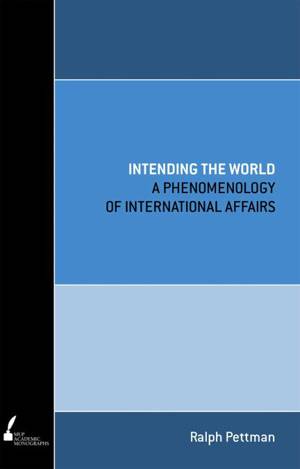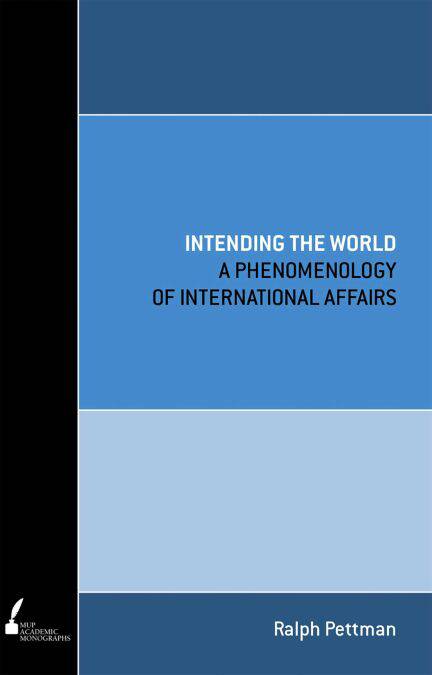
- Afhalen na 1 uur in een winkel met voorraad
- Gratis thuislevering in België vanaf € 30
- Ruim aanbod met 7 miljoen producten
- Afhalen na 1 uur in een winkel met voorraad
- Gratis thuislevering in België vanaf € 30
- Ruim aanbod met 7 miljoen producten
Zoeken
€ 21,80
+ 21 punten
Omschrijving
How we look at the world is informed mainly by our assumptions and the ways in which we rationalise them. Seldom do we rely—or allow ourselves to rely—on 'gut thinking' or intuition.
Intending the World shows how rationalism, which is our primary approach in thinking about world affairs, is in crisis. By studying the world rationalistically, we objectify it and we look at it as detached from ourselves. But in doing so, we cease to see that we are using a perspective that limits as well as enlightens.
In a disciplinary first, Ralph Pettman provides an account of twenty-first century international relations in terms of phenomenology—one of the main philosophical attempts to compensate for these limits. He explores how this re-embedded use of reason can successfully describe and explain world affairs in ways unused by rationalists.
Intending the World follows the lead of the German philosopher Edmund Husserl. It looks at the world not only in terms of things-in-themselves, but also in terms of why it is we keep willing the world the way we do.
Intending the World shows how rationalism, which is our primary approach in thinking about world affairs, is in crisis. By studying the world rationalistically, we objectify it and we look at it as detached from ourselves. But in doing so, we cease to see that we are using a perspective that limits as well as enlightens.
In a disciplinary first, Ralph Pettman provides an account of twenty-first century international relations in terms of phenomenology—one of the main philosophical attempts to compensate for these limits. He explores how this re-embedded use of reason can successfully describe and explain world affairs in ways unused by rationalists.
Intending the World follows the lead of the German philosopher Edmund Husserl. It looks at the world not only in terms of things-in-themselves, but also in terms of why it is we keep willing the world the way we do.
Specificaties
Betrokkenen
- Auteur(s):
- Uitgeverij:
Inhoud
- Aantal bladzijden:
- 232
- Taal:
- Engels
Eigenschappen
- Productcode (EAN):
- 9780522859836
- Verschijningsdatum:
- 14/03/2008
- Uitvoering:
- E-book
- Beveiligd met:
- Adobe DRM
- Formaat:
- ePub

Alleen bij Standaard Boekhandel
+ 21 punten op je klantenkaart van Standaard Boekhandel
Beoordelingen
We publiceren alleen reviews die voldoen aan de voorwaarden voor reviews. Bekijk onze voorwaarden voor reviews.











